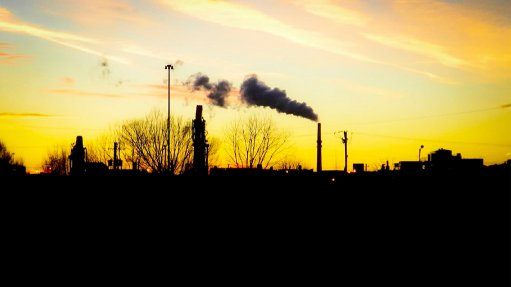
The long-awaited Carbon Tax Act, due to be implemented from Saturday, will put large companies operating in South Africa under increasing pressure to find viable strategies to make their operations more sustainable, an industry expert said on Friday.
The Act, which President Cyril Ramaphosa recently signed into law, has the primary objective of reducing greenhouse gas (GHG) emissions in a sustainable, cost effective, and affordable manner.
But it is a complex piece of regulatory framework that will have a severe cost impact on large businesses – especially those in the industrial sector, said David French, director of tax consulting at audit, accounting, tax and advisory services firm Mazars.
"In light of this, businesses will have to rely heavily on auditors who can advise from a risk and control perspective, tax consultants with an in-depth understanding of the (Act) in order to calculate and correctly apply tax credits, and experienced sustainability consultants who can advise on strategies to reduce operational carbon emissions," he said.
The carbon tax law will be implemented in two phases, the first falling between June 1, 2019 and December 31, 2022 and the second to start in 2023.
In the first phase, companies will be taxed on the total quantity of GHG their operation emits as a result of combustion, fugitive, and industrial processes over a given tax period, at an initial headline rate of R120 per tonne of carbon dioxide (CO2) or its equivalent. This includes CO2, methane, nitrous oxide, perfluorocarbons, hydrofluorocarbons and sulphur hexafluoride.
“It is also important to note that carbon taxes will be imposed on liquid fuels at source, as an addition to the current fuel taxes; as well as on stationary emissions, that will be determined by source category as stipulated in the National Environmental Air Quality Act,” French said.
The phased approach is intended to minimise the impact the legislation will have on the operating costs of companies and the first phase will introduce a number of tax-free allowances to soften the blow.
These include a basic tax-free allowance of 60 percent for all activities; a 10 percent process and fugitive emissions allowance; a maximum 10 percent allowance for companies that use carbon offsets to reduce their tax liability; a performance allowance of up to five for companies that reduce the emissions intensity of their activities and a maximum 10 percent allowance for trade-exposed sectors.
French said the combined effect of all the tax-free thresholds could result in businesses reducing their carbon tax by up to 95 percent.
He said the true impact of the carbon tax would only be fully understood once it was implemented.
"However, the one certainty is that businesses can expect substantially higher costs of doing business," he said. "With this in mind, it is crucial to start looking at sustainability from a price perspective, and involving a tax team early on in the process."